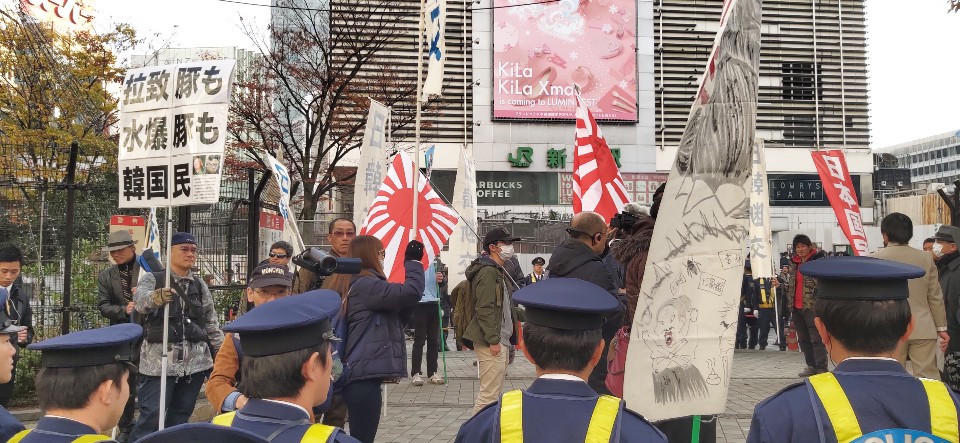
Japanese right-wing activists on Nov. 1 hold an anti-Korean demonstration at the Shinjuku district of Tokyo waving "rising sun" flags. (Yonhap News)
By Kim Eun-young and Kim Hwaya
"The 'rising sun' flag of Japan, a symbol of militarism and the nation's extreme right, is unsuitable for the Olympics, an event people from all around the world participate in under the spirit of peace."
So said Etsuro Totsuka, an international human rights lawyer in Japan, on Dec. 1 on the Japanese government's insistence that the flag's use in next year's Tokyo Summer Olympics will incur no problems.
Playing a key role in publicizing abroad Korea-Japan issues including that of the "comfort women," or those forced into sexual slavery by the Japanese military during World War II, he said, "Using the flag used when the Japanese military invaded Asia during World War II in the Olympics has something in common with a militaristic policy and the idea that there's no problem."
"Japan must consider the feelings of many Asians victimized by Japan's war of aggression, including Korean and Chinese."
The lawyer elaborated on the flag's identity and use by saying, "The rising sun flag is mostly used when (Japanese) right-wing groups wearing military uniforms and singing army songs parade through the streets."
"When I see those who attack the Peace Constitution (of Japan) and urge a return to the militaristic era, three terms come to mind: 'war of aggression,' 'colonial rule' and 'violence,'" he said, adding, "I'm worried that such a scary era is returning."
Totsuka said, "The Japanese people must thoroughly study historical facts and not forget to reflect on (Japan's) colonial rule and militarism," blaming the decision to allow the flag at the Tokyo Olympics on lack of historical recognition.
eykim86@korea.kr